|
I’ve decided to join the Blogging from A to Z April Challenge, which means posting 26 times throughout the month using the letters of the alphabet as a guide. (On April 1st, A is for …. and so on.) My blogging theme for the month of April is Inspiration. I’ll tackle sources of inspiration for writers and other creative-type people throughout the month. If you want to generate some ideas for my posts, let me know in the comments what inspires you.
Marketing a book is different from marketing toys, pharmaceuticals, or cars. But of course there are books about how to market books! Here are five that may help. 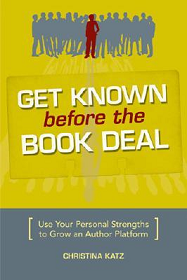 ISBN 9781582975542 ISBN 9781582975542 Get Known Before the Book Deal: Use Your Personal Strengths to Grow an Author Platform By Christina Katz Excerpt from description: "Before you can land a book deal--before you can even attract the interest of agents and editors--you need to be visible. How do you become visible? You develop a platform, or a way of reaching your readers. Everybody can develop a platform, and this book shows you how to do it while you're still writing." I think "platform" can be a tricky concept for novelists, but I love the idea that there are things writers can be doing *today*, even without a book deal. 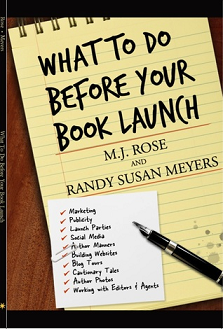 ISBN: 9780985861117 ISBN: 9780985861117 What To Do Before Your Book Launch By M.J. Rose; Randy Susan Meyers Description: "What To Do Before Your Book Launch is a guide for authors, covering everything from working with your publisher, to reading in public, to help for publicity and marketing, to using (and misusing) social media, to how to dress for your author photo…and far more, including cautionary tales, worksheets, timelines and etiquette tips." Sometimes marketing is overwhelming. And sometimes even books about marketing can be overwhelming. Not this one! This guide is helpful and succinct. It contains useful lists and a great sample timeline of activities. 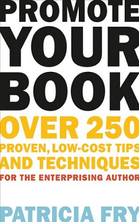 Promote Your Book: Over 250 Proven, Low-Cost Tips and Techniques for the Enterprising Author By Patricia Fry Excerpt from description: "A well-organized collection of the most successful low- and no-cost ideas for promoting a book." This book is geared more toward self-published writers but offers information that would be useful to the traditionally published as well. 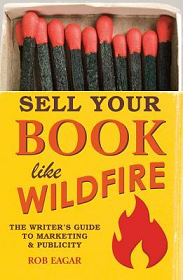 ISBN: 9781599634210 ISBN: 9781599634210 Sell Your Book Like Wildfire: The Writer's Guide to Marketing & Publicity By Rob Eager Excerpt from description: "You've written a book, but if it doesn't sell, what's the point? In 'Sell Your Book Like Wildfire, marketing expert Rob Eagar explains how to use the best promotional methods available to get your book noticed and drive sales." Chapter 14 is dedicated to fiction writers and this book contains an interesting section explaining Amazon rankings. 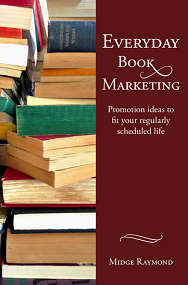 ISBN 9781618220271 ISBN 9781618220271 Everyday Book Marketing: Promotion Ideas to Fit Your Regularly Scheduled Life By Midge Raymond Excerpt from description: "Book publication is just the beginning... Everyday Book Marketing is for the published author who is not only a writer but who also may have another career, a family, and any number of other obligations that require fitting book promotion into a budget where both hours and dollars may be hard to find. This book will guide you on the journey from Writer to Marketing Pro, offering essential marketing tools along the way-including such book promotion basics as how to schedule a book tour and how to make the most of social media to how to keep the buzz going long after your launch date." I just finished this book recently. It's divided into useful sections that each end with ideas on how to break the big steps into manageable ones. The end of the book contains some interesting interviews with authors and experts. Do you know of other book marketing resources? Please let me know in the comments.
 Get writing! Get writing! For this week's Teen Tuesday, check out Teens Writing for Teens. The site includes practical information, like formatting the query letter, writing a synopsis, and preparing your manuscript. It also features inspirational advice about getting started and a suggested reading list. Although the blog and facebook account are no longer maintained, the website contains some timeless help for teens who write. Do you know of any websites that help teenage writers? Let me know in the comments and I'll consider them for a future Teen Tuesday profile.
The NY SCBWI Conference was an amazing source of inspiration, information, and writing ideas. I have to admit that when I boarded the train to return home, I was a little sad to leave behind the conference magic. Looking through my notes, I found several resources that were mentioned during the conference, so I thought I'd share them with you for this week's Friday Five. Mentioned by Kate Messner during her keynote, "The Spectacular Power of Failure" 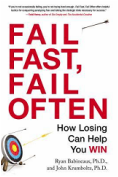 ISBN13: 9780399166259 ISBN13: 9780399166259 Fail Fast, Fail Often: How Losing Can Help You Winby Ryan Babineaux, John Krumboltz Excerpt from the book description: "Ryan Babineaux and John Krumboltz, psychologists, career counselors, and creators of the popular Stanford University course 'Fail Fast, Fail Often,' have come to a compelling conclusion: happy and successful people tend to spend less time planning and more time acting. They get out into the world, try new things, and make mistakes, and in doing so, they benefit from unexpected experiences and opportunities." Recommended by Emma Dryden in her "A Few Good Resources" handout for the plot intensive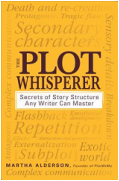 ISBN13: 9781440525889 ISBN13: 9781440525889 The Plot Whisperer: Secrets of Story Structure Any Writer Can Master by Martha Alderson Excerpt from the book description: "When it comes to writing bestsellers, it's all about the plot. Trouble is, plot is where most writers fall down--but you don't have to be one of them. With this book, you'll learn how to create stories that build suspense, reveal character, and engage readers--one scene at a time." Martha Alderson also has a corresponding blog, Plot Whisperer for Writers and Readers. Recommended by Jane Friedman during her "Building an Author or Illustrator Platform" session: this video from Simon Sinek, "Start With Why" Mentioned during Jill Santopolo's session "The Fundamentals of Plot" 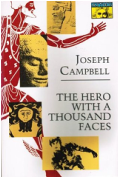 ISBN13: 9780691017846 ISBN13: 9780691017846 The Hero With a Thousand Faces by Joseph Campbell Excerpt from the book description: "Best-selling exploration of world myth and the individual soul's development that has changed millions of lives and was the focus of the recent Bill Moyers special on PBS. In this book Campbell reveals the basis of the monomyth theory which deeply influences the mythologic and folkloric studies." Another interesting book mentioned by Kate Messner during her "The Spectacular Power of Failure" speech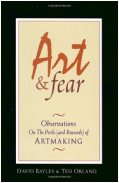 ISBN13: 9780961454739 ISBN13: 9780961454739 Art and Fear: Observations on the Perils (and Rewards) of Artmaking by David Bayles, Ted Orland Excerpt from the book description: "Art & Fear explores the way art gets made, the reasons it often doesn't get made, and the nature of the difficulties that cause so many artists to give up along the way." Kate also has a blog post about the conference weekend which contains numerous other resource links from her speech. It's not quite as good as being there, but it's a start. Let me know in the comments if you have anything to add from the conference.
A writing conference for teens only!
"We specify so strongly that we are for teens because we find that teen writers are in such a unique position. They are in school and have, obviously, already determined their excitement to write. We therefore try to put them on a path toward taking advantage of the opportunities unique to them," says Josi Kilpack, President of Teen Writers Inc, the non-profit that sponsors the conference. "We focus on craft, voice, and how to prepare for a future in publishing. We also run a contest open to all attendees where they can get professional feedback and cash prizes. It really is an opportunity for them to explore their passions in a way that best prepares them for their futures."
In its sixth year, the conference limits attendance to 150 teens. Visit Teen Writers Conference for more information. Last Friday's post was about books for writing inspiration. This week's post is about the craft and editing aspect of writing (although, admittedly, some of the books do overlap). Here are five favorites: 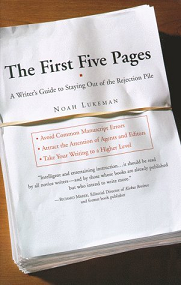 ISBN13: 9780684857435 ISBN13: 9780684857435 The First Five Pages: A Writer's Guide To Staying Out of the Rejection Pile by Noah Lukeman Excerpt from official description: “Editors always tell novice writers that the first few pages of a manuscript are crucial in the publishing process -- and it's true. If an editor or agent (or reader) loses interest after a page or two, you've lost him or her completely, even if the middle of your novel is brilliant and the ending phenomenal. Noah Lukeman, an agent in Manhattan, has taken this advice and created a book that examines just what this means…” Despite the book title, Lukeman’s advice often applies to the whole manuscript, not just the opening. 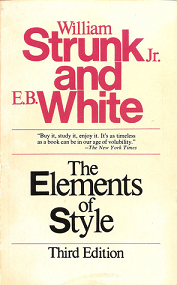 ISBN13: 9780205313426 ISBN13: 9780205313426 The Elements of Style by William Strunk Jr., E.B. White Excerpt from official description: “This classic reference is a must-have for any student or writer. In this brief handbook, Strunk identifies the principal requirements of proper American English style and concentrates on the most often violated rules of composition. Authoritative and engagingly written, this is simply the greatest book of its kind.” This old stand-by makes it easy to look up problematic word usage, like lie vs. lay. 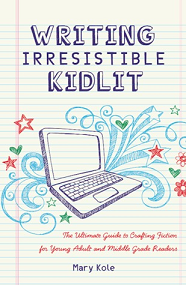 ISBN13: 9781599635767 ISBN13: 9781599635767 Writing Irresistible KidLit: The Ultimate Guide to Crafting Fiction for Young Adult and Middle Grade Readers by Mary Kole Excerpt from official description: “Mary Kole's candid commentary and insightful observations, as well as a collection of book excerpts and personal insights from bestselling authors and editors who specialize in the children's book market, are invaluable tools for your kidlit career.” This recent book (published in 2012) provides great advice for children’s writers and provides many examples from contemporary fiction. 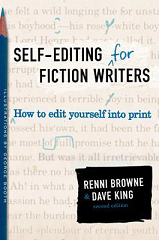 ISBN13: 9780060545697 ISBN13: 9780060545697 Self-Editing for Fiction Writers: How to Edit Yourself Into Print by Renni Browne, Dave King "A superb tutorial for anyone wanting to learn from pros how to polish fiction writing with panache." -- Library Journal My copy has lots of highlighting. (And I’m using the passive voice here on purpose!) 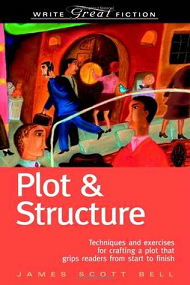 ISBN13: 0035313109423 ISBN13: 0035313109423 Plot & Structure: Techniques and Exercises for Crafting a Plot That Grips Readers from Start to Finish by James Scott Bell Excerpt from official description: “How does plot influence story structure? What's the difference between plotting for commercial and literary fiction? How do you revise a plot or structure that's gone off course? With Write Great Fiction: Plot & Structure, you'll discover the answers to these questions and more.” I particularly liked chapter eleven about revision, since I spend a lot of my time on that part of the process. Please let me know about your favorite craft and editing books in the comments. And if you'd like 5 more writing tidbits, check out my blog post about setting that was featured earlier this week at UncommonYA.
This week's Teen Tuesday features an interview with Jody Carrow, Editor-in-Chief of the Claremont Review, an international magazine for young writers based in Canada. The Claremont Review is a paying market ($10.00 per magazine page and one complimentary copy). They publish "first-class poetry, short stories and short plays by young adult writers, aged 13-19, from anywhere in the English speaking world." How does the Claremont Review differ from other teen literary magazines? The Claremont Review differs from other teen literary magazines in a few ways: first, the magazine has a long (22 years) and credible history as a literary publication; second, its emphasis remains on the craft of writing and maintains a high standard of literary excellence; 3rd, I think the Review does not editorialize for content (except hate literature of any kind) -- it truly is an open forum for teens to explore the issues and topics that matter to them. If a piece of work holds its own literary merit, we run it, no matter what. The Claremont Review has been publishing teen writers for over twenty years. How would you characterize current submissions? Are there any trends in teen writing that you’ve noticed? I can’t speak for all of the past 22 years since I just came on board a little over a year ago, but I would say after reading some back issues that there seems to be a rising interest in dystopian genre fiction. I know there has been an explosion of this type of literature available to teens and I think this is what many youth are reading in their spare time. Although we do not accept this type of fiction, what is encouraging about the submissions of this nature that we have read is that many of them are written very, very well. By that I mean strong, complex characters, plots that are character driven rather than action driven, and some excellent prose. Genre fiction is often discounted for being the “easy” way of becoming a writer because it is largely exempt from the high literary standards we impose on other styles of writing, but some of the teens we have read may one day prove that maxim to be passé compose simply by virtue of their talent merging with their chosen form. In poetry, there is a disturbing trend towards not punctuating -- AT ALL. There are poems that work without punctuation because the author has carefully crafted each line to flow into the next, so I am not saying a poem can’t be done this way, but more and more we are seeing poems where the punctuation is just left out. We wonder if this has to do with the rise in texting and other forms of electronic shorthand combined with fewer and fewer teachers spending the time on this component of writing. Whatever the reason, when we read poems that are unpunctuated for NO APPARENT REASON, we get mad. Occasionally if the poem is really good, we will work with the writer to punctuate it, but otherwise, to the rejection pile it goes. Besides the submission guidelines provided online, could you provide more information about what type of creative work appeals to you? (Just to confirm, all work is submitted through regular mail?) The type of creative work we are looking for and celebrate when we get, is fresh, nuanced, and unique. In other words, we are all humans more or less living out the same types of experiences --birth, death, love, loss, relationships, identity, etc -- but when a writer can expertly spin their story around these common experiences in a way that only could be told by that particular writer, we get really excited. Powerful, confident and new voices in literature. We have all day for writers of that calibre. Writers who take chances. And yes, all our submissions come through the mail. What is the most common mistake or flaw that you see in submissions? The most common errors people make when submitting to us is not including a self-addressed stamped envelope (SASE). If you care for feedback, then you must include it! Similarly, if you want your formal acceptance letter mailed to you, we won’t do it without one! Another common error is not responding to us in time with the requisite items and missing getting published. Will you be running another annual contest? Can you provide any specific tips for teens who want to enter? We will definitely be running our annual contest, and plan to forever! Our tips would be to have someone who loves you (but not so much that they just tell you everything you write is brilliant -- sorry, Moms and Dads out there) to proofread your submission before you send it in. Also, read, read, read as much short fiction and poetry you can get your hands on AND read past issues of our magazine to get a sense of the magazine’s aesthetic. What advice would you offer teen writers?
Thank you, Jody. To learn more about the Claremont Review, visit their website, which includes advice from authors and helpful tips on getting published. Submission guidelines for writing and the visual arts are available online.
If you're feeling creatively stagnant, here are five inspiring books that might help. Escaping into the Open: The Art of Writing True |
| We’re open to all kinds of writing. Poetry, short stories, essays, non-fiction, plays, dialogues--we want it all. We definitely don’t want submitters to feel as if they have to censor their writing, because reading it is like listening to muffled music. A piece’s language, topic, characters--make them unique, make them special, make them matter. We want your writing, not what someone else thinks your writing should be. Send us a little fragment of your mind, embodied by words. | We definitely don’t want submitters to feel as if they have to censor their writing, because reading it is like listening to muffled music." |
Sparring Mind

Book of Kells

Positively Peggy

The Art of Not Getting Published

Writing and Illustrating

Sign up for Yvonne's newsletter for exclusive content, book news, and other occasional author goodies.
Archives
January 2025
December 2024
October 2024
September 2024
August 2024
July 2024
June 2024
May 2024
April 2024
March 2024
February 2024
January 2024
December 2023
November 2023
October 2023
September 2023
August 2023
June 2023
May 2023
April 2023
March 2023
February 2023
January 2023
December 2022
November 2022
October 2022
September 2022
August 2022
July 2022
June 2022
May 2022
April 2022
March 2022
February 2022
November 2021
October 2021
September 2021
August 2021
July 2021
June 2021
May 2021
April 2021
March 2021
December 2020
October 2020
September 2020
August 2020
July 2020
June 2020
May 2020
April 2020
March 2020
February 2020
January 2020
December 2019
November 2019
October 2019
September 2019
August 2019
May 2019
April 2019
March 2019
February 2019
January 2019
December 2018
October 2018
September 2018
June 2018
May 2018
April 2018
March 2018
February 2018
January 2018
November 2017
October 2017
September 2017
August 2017
July 2017
June 2017
May 2017
April 2017
March 2017
February 2017
January 2017
December 2016
November 2016
October 2016
September 2016
August 2016
July 2016
June 2016
May 2016
April 2016
March 2016
February 2016
January 2016
December 2015
November 2015
October 2015
September 2015
August 2015
July 2015
June 2015
May 2015
April 2015
March 2015
February 2015
January 2015
December 2014
November 2014
October 2014
September 2014
August 2014
July 2014
June 2014
May 2014
April 2014
March 2014
February 2014
January 2014
December 2013
November 2013
October 2013
Categories
All
Agent
A To Z Blogging Challenge
Banned Books Week
Black Flowers White Lies
Bookbub
Book Cover
Book Marketing
Books
Celebration Blog Hop
Censorship
Character Development
Cliffhangers
Contagious Disease
Contest
Creativity
Denimday
Ecosystem
Edna St. Vincent Millay
Fear
Freelance Writing
Giveaway
Guest Post
Hero Lost Anthology
Holidays
Instagram
Interview
Island Trees
Iswg
Iwsg
Journals
Julie Matysik
Karate
Lies
Literacy
Liza Fleissig
Maya Angelou
Nanowrimo
Novels In Verse
One Teen Story
Organization
Pandemic
Paying Markets
Piri Thomas
Poetry
Point Of View
Power Of Language
Prod
Productivity
Project Runway
Quarantine
Quotes
Research
Revision
SCBWI
Setting
Sky Pony
Social Media
Stephen King
Suspense
Teen Tuesday
Teen Writers
The Last Ship
Thriller
Tom Petty
Twitter
Vision Boards
Voyagers Anthology
WriteOnCon
Writers Block
Writers For Hope
Writing
Writing Markets
Writing Resources
Writing Workshops
YA DASH
YASH
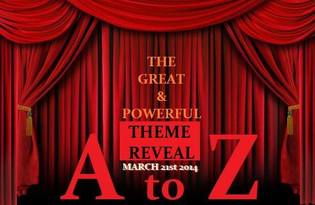
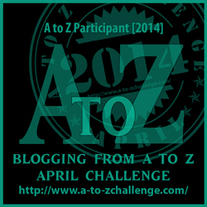
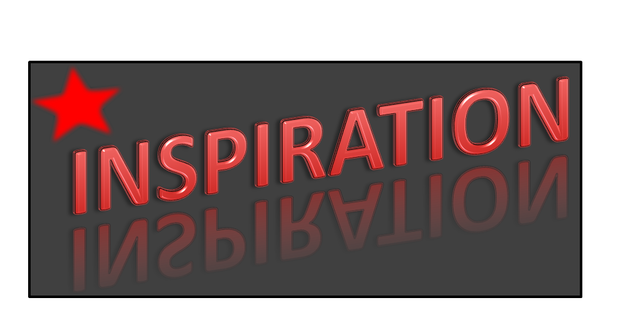
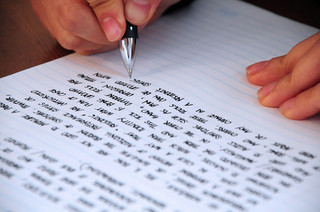

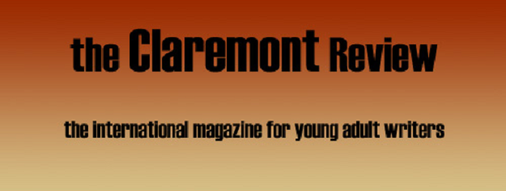
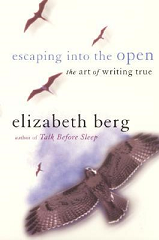
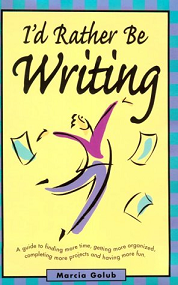
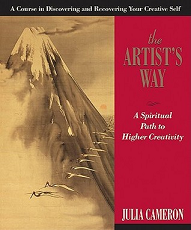
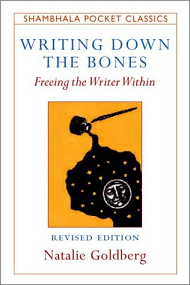
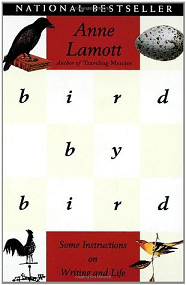
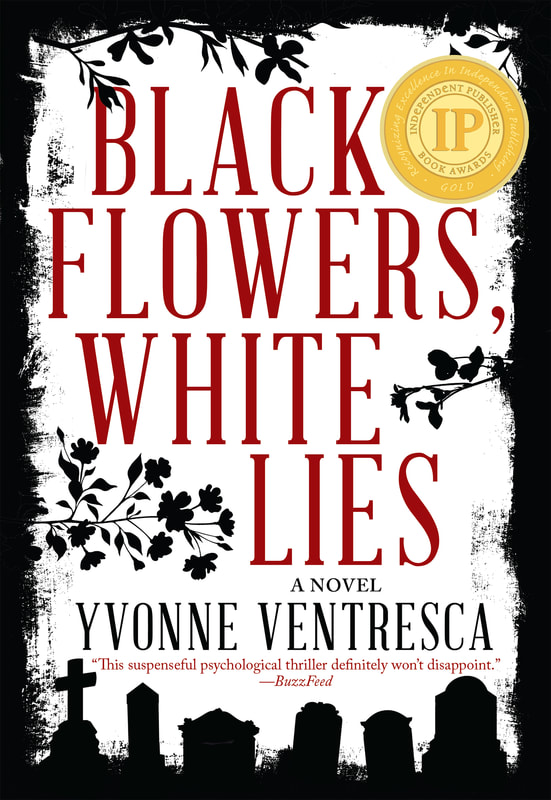
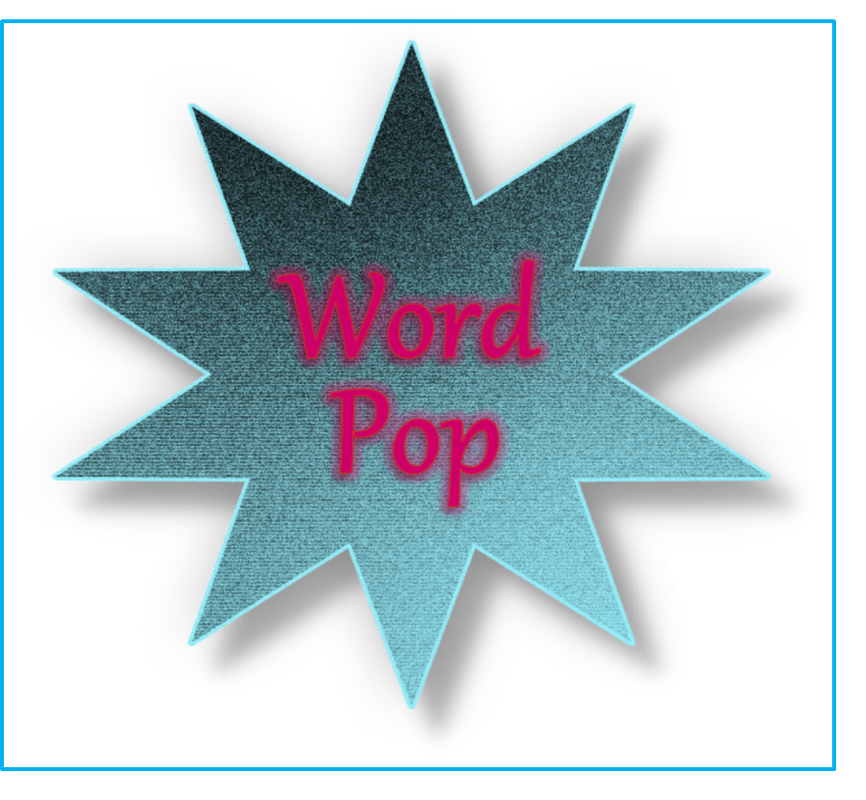
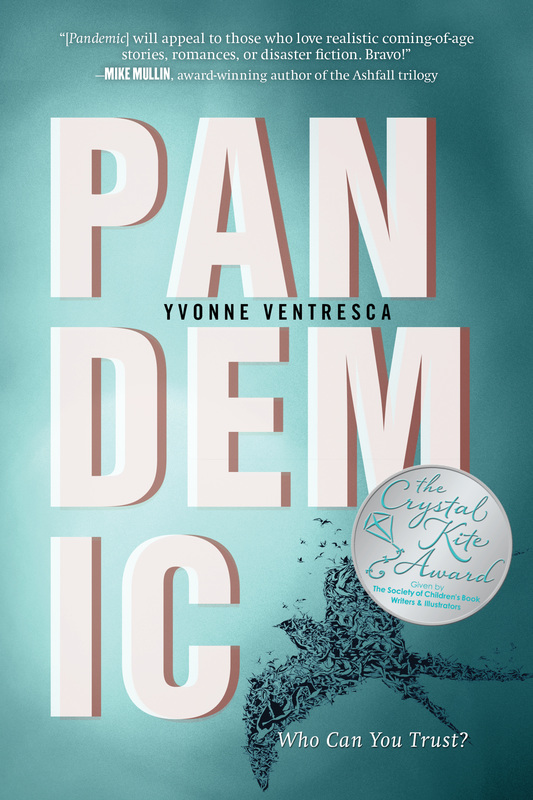
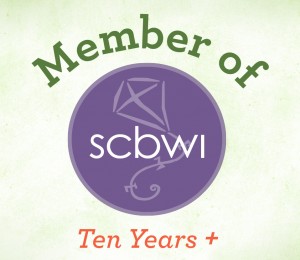

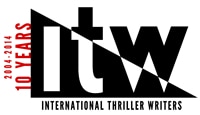
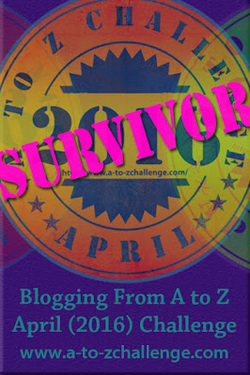
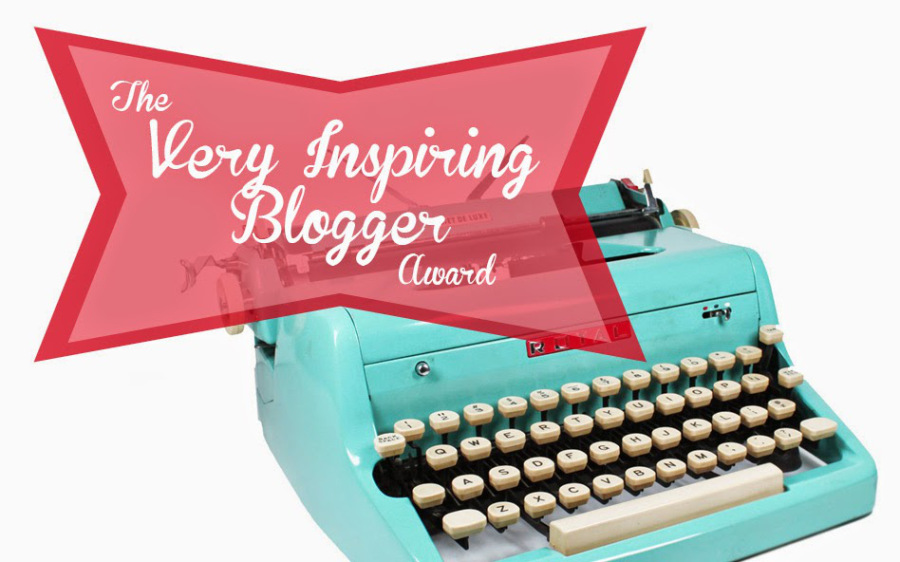
 RSS Feed
RSS Feed